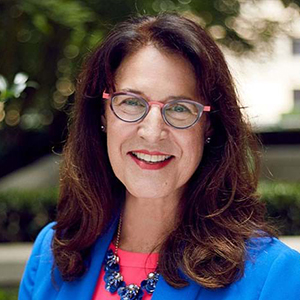
Equality on International Women’s Day
I am an entrepreneur. I’m also a woman. As a result, I’ve been asked about a million times over the course of my career how it feels to be a “woman entrepreneur” — a phrase that frustrated me. Why did I always have to be a woman entrepreneur? What did my gender have to do with my work? Why couldn’t the world see me as I saw myself — as a successful business PERSON, full stop?
The fact is, though, I AM a woman entrepreneur. To me, that has always meant it’s both an honor and a necessity to lend a hand, and my voice, to the other people following in my footsteps.
Connecting Past and Present
Historians trace the origins of International Women’s Day to February 1909, when thousands of suffragists and socialists gathered in auditoriums around the city to hear speeches calling for economic and political equality for women.
“It is true that a woman’s duty is centered in her home,” the writer Charlotte Perkins Gilman told a crowd in Brooklyn, but “home should mean the whole country and not be confined to three or four rooms.”
That was a pretty radical idea in 1909. It’s still pretty radical today.
In subsequent years, the movement spread around the world. Every March until World War I began, hundreds of thousands of people in the U.S. and Europe took to the streets to demand gender equality in workplaces and state houses alike. They chanted James Oppenheim’s poem “Bread and Roses” (which may be familiar to Joan Baez and Judy Collins fans out there):
As we go marching, marching, we’re standing proud and tall.
The rising of the women means the rising of us all.
“The rising of the women means the rising of us all.” That, too, is pretty radical — and I’ve been thinking about it a lot lately, as the #metoo movement raises awareness of and accountability for workplace harassment; as women marchers across the country shape a new kind of grassroots organizing for the 21st century; and as groups as different as She Should Run and the Female Founders Alliance work to increase the number of women in politics, in tech and in public life more generally.
Women’s Leadership Gains
Thanks to women like these — women who have used their stories to disrupt toxic paradigms, build communities and start movements — we have made great advances.
For one thing, more women hold elected government positions in the United States than ever before —and according to the Center for American Women and Politics at Rutgers, a record-breaking number of women will be running for public office in 2018.
What’s more, according to a recent American Express OPEN study, there are nearly 120 percent more women-owned businesses in the U.S. than there were 20 years ago.
Continuing the Positive Momentum
We’ve come a long way, and today is about celebrating that. Today, I join other fearless female leaders in sharing our experiences about what it means to #LeadLikeAWoman.
But it’s also a clarion call for us to step up and do more.
We all need to stand in solidarity with one another, working together to press for progress until we have a world of equality for everybody, men and women, across the board.
And WE is stepping up to do just that.
- WE’s Global Pro Bono program sends men and women alike to countries around the world, so they can take their communications skills to the next level and tell transformative stories to advance the cause of local nonprofits and help build stronger communities around the globe. Right now, WE employees have rolled up their sleeves and joined Pyxera Global’s Global Health Corporate Champions cohort in Rwanda. The projects they’ll be working on focus on sanitation and nutrition along with gender inclusion and inequality.
- WE’s Pay for Performance system tackles the gender pay gap head on, by treating men and women equally.
- And, of course, the Pam Edstrom Scholarship Fund will help young men and women with passion to grow and find their own place in the world. For now, the scholarships will benefit students right here in our backyard, at the University of Washington and the University of Oregon. We look forward to the opportunity to meet and celebrate future recipients and introduce them to WE.
Pam and I often spoke about the long-term impact of WE, and we agreed: For us, all roads lead back to empowering people — all people — and leaving the world a better place than we found it. That’s why it’s fitting that International Women’s Day falls so close to the anniversary of Pam’s first day at WE. By building a culture in which everybody feels valued, supported and able to do their best work, we strike a blow for equality each and every day.
Read more posts from WE Global CEO and Founder Melissa Waggener Zorkin here.
Follow Melissa on LinkedIn and Twitter.
The latest blogs from WE
Pride is Democracy
Overcoming the Lack of Diversity in Clinical Trials
Is Corporate Purpose Still Relevant in 2024?


